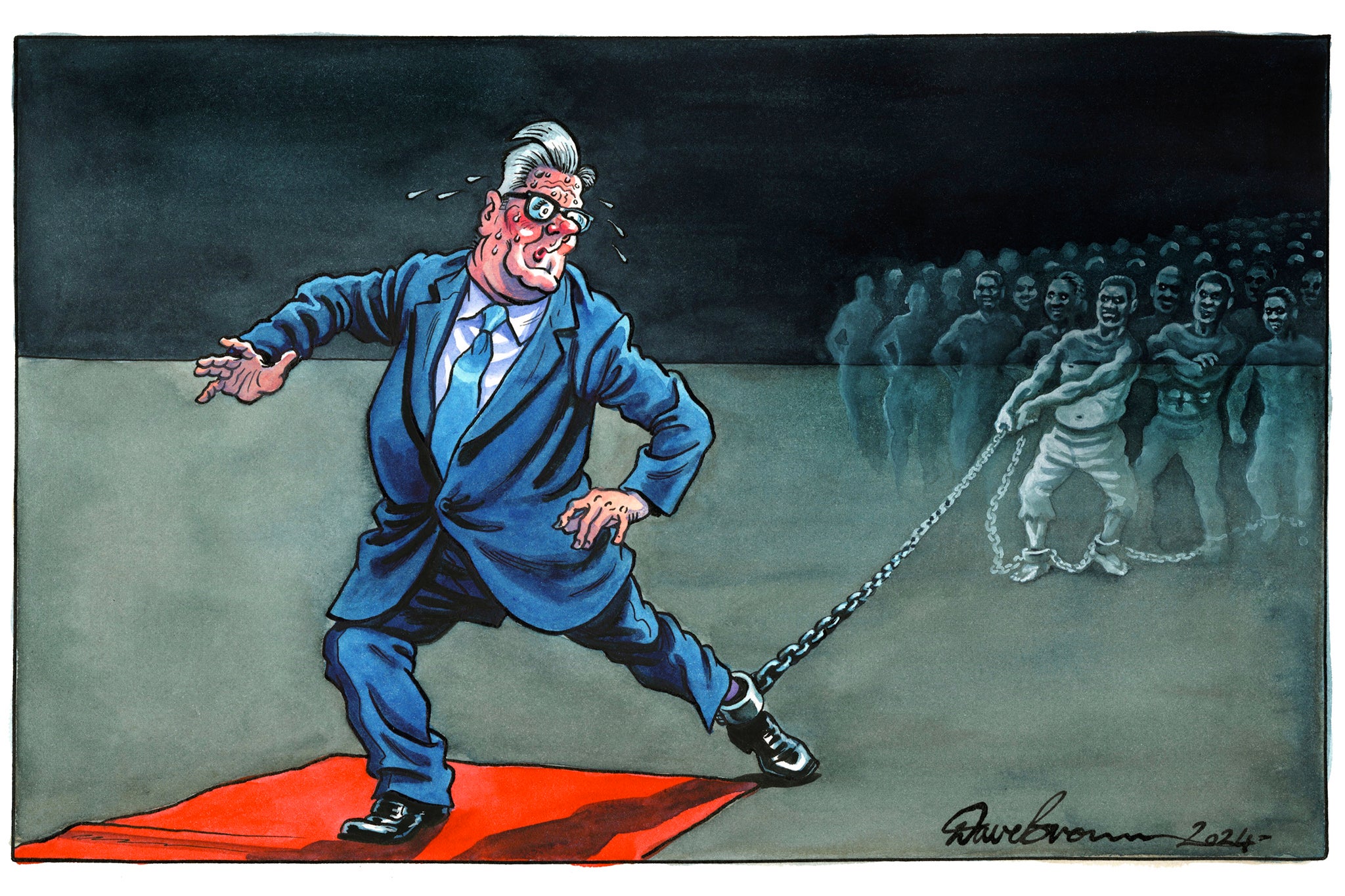Starmer faces a showdown over reparations at the Commonwealth summit – he should hold his nerve
Editorial: Despite the justified passions aroused by the murderous crimes of slavery, some sort of compromise should be available at the Samoa conference

It should come as no surprise that the British prime minister should find himself confronted with some powerful and passionate demands for “reparatory justice” at the Commonwealth Heads of Government Meeting (CHOGM) in Samoa.
Today’s Commonwealth of Nations is the increasingly distant descendant of the British empire. Almost every one of the 56 nations gathered has some or other quite genuine grievance against the former occupying power. Many lands were occupied, plundered and their peoples brutalised – and worse – while the British built the most formidable empire since the Romans.
That is the context to the otherwise convivial sessions involving Sir Keir Starmer and his counterparts, each an equal and independent participant. In such a framework, Sir Keir cannot keep the question of reparations for slavery off the agenda, as he would wish; and he has no choice but to listen to the arguments and make his own case.
For Sir Keir – a human rights lawyer by profession – it will mean some difficult conversations, particularly with leaders from Jamaica, Barbados, the Bahamas and the other Caricom states. For the foreign, commonwealth and development secretary, David Lammy, the talks are also complicated by his past advocacy for reparations to be paid to the victims of the Windrush scandal (albeit something diametrically different on the slave trade). At least his Guyanan heritage will give some purchase in the debates.
The highly – and ruinously costly – fact of post-imperial life is that if the United Kingdom had to pay full reparations for its role in slavery and the many other crimes against humanity committed by generations of imperialists, it really would be bust. The bill for 800 years of cruelty and oppression in Ireland alone would result in national bankruptcy.
The sums involved, if this particular injustice were to involve huge financial transfer, would be a large multiple of UK GDP – and unrealisable. It could be argued that a fraction of that amount – billions, rather than trillions of pounds – could be offered up; but even that would be politically impossible. There is also, of course, the more philosophical argument about whether apologies and reparations really “work” if all of those involved are dead; and, in the case of the slave trade, the Royal Navy played a significant role on the high seas in bringing it to an end – Britain being the earliest to do so.
In past CHOGM showdowns, British prime ministers have often found themselves in a minority of one (or near enough) on issues of immediate import, rather than historical injustices. For example, the British faced calls to take military action against the white rebel regime in Rhodesia, but found a way to limit action to UN sanctions. From the 1960s to the 1980s, the question was the best way to end the apartheid regime in South Africa, which had – by 1961 – left the Commonwealth.
Even with as stubborn a premier as Margaret Thatcher, the CHOGM managed to fashion compromises that somehow kept the organisation going, and which helped, if marginally, to secure the release of Nelson Mandela and a peaceful transition to democracy. There have been other crises, too: over human rights in Zimbabwe, in Fiji, in Pakistan, and (most recently) in Gabon. The Commonwealth, because of its very strong but flexible bonds, has survived all its genuinely existential crises as a uniquely multinational, multiracial, multicultural club of (mostly) friendly people.
Despite the justified passions aroused by the murderous crimes of slavery, some sort of compromise should be available at the Samoa summit. The calls for reparations concern the Caribbean states, most acutely – but other countries, notably in west Africa, are conscious of the fact that slavery wasn’t a monopoly of the Europeans and may have a different perspective. Australia, Canada and New Zealand will have cause to consider whether their own First Nations people deserve proper financial restitution for loss of ancestral lands and other crimes.
If an apology on behalf of the British state is in order – one that does not then trigger a legal action in the international courts – then there are many precedents. The British, including Queen Elizabeth II, have said sorry and expressed deep regret.
As long ago as 2007 – on the bicentenary of the British parliament passing An Act for the Abolition of the Slave Trade, the then prime minister Tony Blair repeated his previous statement of “deep sorrow” for slavery: “We are sorry. And I say it again now… For us, the most important thing though is obviously to remember what happened in the past and to condemn it and say why it was so entirely unacceptable.”
That formulation should serve as a basis for Sir Keir and Mr Lammy to make their own statement to their Commonwealth colleagues – and, if possible, to restate their practical commitment to the economic development of the Caribbean nations whose cultures and economies were shaped by slavery undertaken by Europeans.
There are disturbing rumours that the chancellor, Rachel Reeves, is planning cuts to UK overseas aid in her Budget. Now would not be the moment to do so.
Join our commenting forum
Join thought-provoking conversations, follow other Independent readers and see their replies
Comments
Bookmark popover
Removed from bookmarks